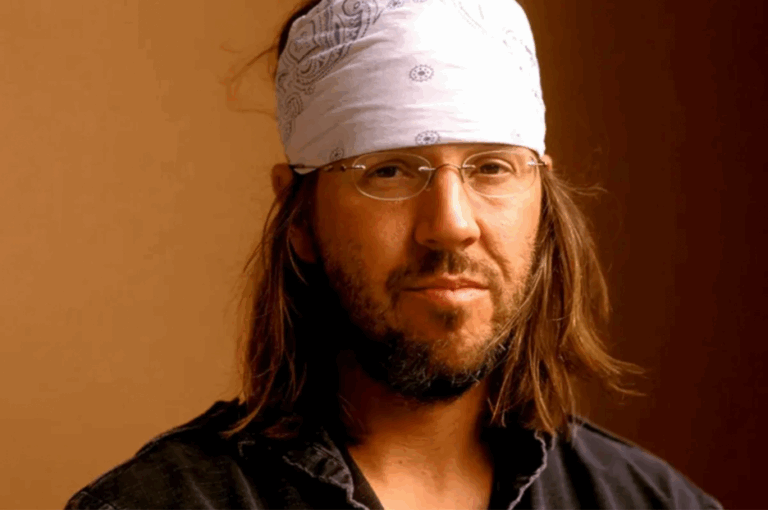The future is ours to build. Let’s Make America Boom Again, start using AI today, embrace the wonder of our origins – and acknowledge that ideas rule.
Talking Big Ideas.
“Adventure is worthwhile in itself.”
~ Amelia Earhart
This newsletter is about Big Ideas. How to talk about them, why they matter, and how they can make the world a better place.
Today’s piece begins a new feature which will occasionally join our rotation, highlighting some ideas I think are worth a deeper dive.
IDEA: We have a duty to build a better world.
BACKGROUND: Karl Popper, the 20th-century philosopher famous for arguing that the future is not preordained but ours to build (and that to do so we should all regularly learn from our mistakes), writes in The Myth of the Framework (1994):
“The possibilities that lie in the future are infinite. When I say ‘It is our duty to remain optimists,’ this includes not only the openness of the future but also that which all of us contribute to it by everything we do: we are all responsible for what the future holds in store. Thus it is our duty, not to prophesy evil but, rather, to fight for a better world.”
Many people today are in the business of prophesying evil. Instead of bending to the pressure to criticize and spread anger and doom, can you and I both step up and help build a better world?
***
IDEA: Make America Boom Again.
BACKGROUND: Eli Dourado is an economist working to end the great stagnation. His Substack is always thoughtful and worthwhile. Last week he published 50 years of silence:
Fifty years ago today, on March 23, 1973, Alexander P. Butterfield, the Administrator of the Federal Aviation Administration, issued a rule that remains one of the most destructive acts of industrial vandalism in history.
“No person may operate a civil aircraft at a true flight mach number greater than 1 except in compliance with conditions and limitations in an authorization to exceed mach 1 issued to the operator under Appendix B of this part.”
The rule imposed a speed limit on US airspace. Not a noise standard, which would make sense. A speed limit . . . there is something decadent about putting a complete halt to the development of a key technology . . . .
I am fully on board with Eli’s goal to have GDP per capita reach $200k by 2050. Progress and prosperity are good; stagnation and suffering are bad. For more, see The CGO’s research on tech & innovation.
***
IDEA: You are the result of exploding stars.
BACKGROUND: Alan Lightman is a professor at MIT and author of six novels and several non-fiction books. The Washington Post aptly calls him “the poet laureate of science writers.” He’s a modern Carl Sagan, able to bring to life the wonder and beauty of the universe.
Lightman’s latest book, Probable Impossibilities (2021), was recommended to me by my buddy Jeff Rowes. Here’s a relevant passage:
“Every atom in your body except for hydrogen and helium was made in stars long ago and blown into space when those stars exploded – much later to be tossed into the air and soil and oceans of Earth and eventually incorporated into your body . . . if you could tag all the atoms in your body and follow them backward in time, every atom, except for hydrogen and helium, would return to a star. We are as certain of this story as we are that the continents were once joined.”
Taking a moment to reflect on this is truly brain melting. One of the beauties of taking time to think about ideas like this is that they help us to experience the sensation “awe,” which immediately “frees our minds” from negativity and self-criticism, filling us with wonder instead.
As the Berkeley scientist Dacher Keltner writes, “awe brings us joy, meaning, and community, along with healthier bodies and more creative minds.”
I wonder, how can we make it a habit to regularly experience awe?
***
IDEA: Pandora’s Box is open.
BACKGROUND: Wharton professor Ethan Mollick runs a Substack that exploded in popularity this year. He’s the best writer today explaining how to use the many emerging AI tools. From his piece Acceleration (March 23):
“The world is about to change in complex ways, both good and bad . . . the only way to prepare for the future is to get as comfortable as possible with the AIs available today. Everyone should practice using them for work and personal tasks, so that you can understand their uses and limits. Things are only going to accelerate further from here.”
Mollick’s follow up piece on what an AI can do in 30 minutes is a must read. AI is an unprecedented productivity multiplier that will disrupt countless industries – and provide billions of people with a brighter and more inclusive future. Here’s my essay on using AI to improve public speaking.
Here’s an open letter to pause AI development, and an excellent response to it. The future is here and transformational change is inevitable. Mollick is right: even if it’s just to play around for now, start using AI today!
***
IDEA: The most powerful people are in the ideas business.
BACKGROUND: Seventy years ago Robert Heilbroner wrote a timeless classic that weaves together history, philosophy, economics, and literature.
I first read The Worldly Philosophers (1953) shortly after moving to DC in 2005, and it changed the way I see the world. I just stumbled across an old copy at a used bookstore in Durango. Flipping back through it, the quality of Heilbroner’s writing jumps out at me:
“This is a book about a handful of men with a curious claim to fame . . . what they did was more decisive for history than many acts of statesmen who basked in brighter glory . . . they shaped and swayed men’s minds . . . [they] shaped and swayed the world.”
“They left in their train shattered empires and exploded continents, they buttressed and undermined political regimes . . . because of the extraordinary power of their ideas. . . . We know them as the Great Economists . . . [they] pursued an inquiry as exciting – and as dangerous – as any the world has ever known.”
Helibroner goes on to quote the great economist Lord Keynes:
“The ideas of economists and political philosophers, both when they are right and when they are wrong, are more powerful than is commonly understood. Indeed the world is ruled by little else. Practical men, who believe themselves to be quite exempt from any intellectual influences, are usually the slaves of some defunct economist. Madmen in authority, who hear voices in the air, are distilling their frenzy from some academic scribbler of a few years back. ”
Ask yourself, how many of the thoughts you’re eager to share are truly your own – and how many were likely planted by “academic scribblers” of yesteryear?
***
Big Ideas are all around us.
Ideas that shape our world – and ourselves. Ideas that will change the course of human history. Ideas we’ve forgotten we even have.
The more we explore them, clarify them, and bring them to life, the better chances we have of building a prosperous and awe-filled future.




